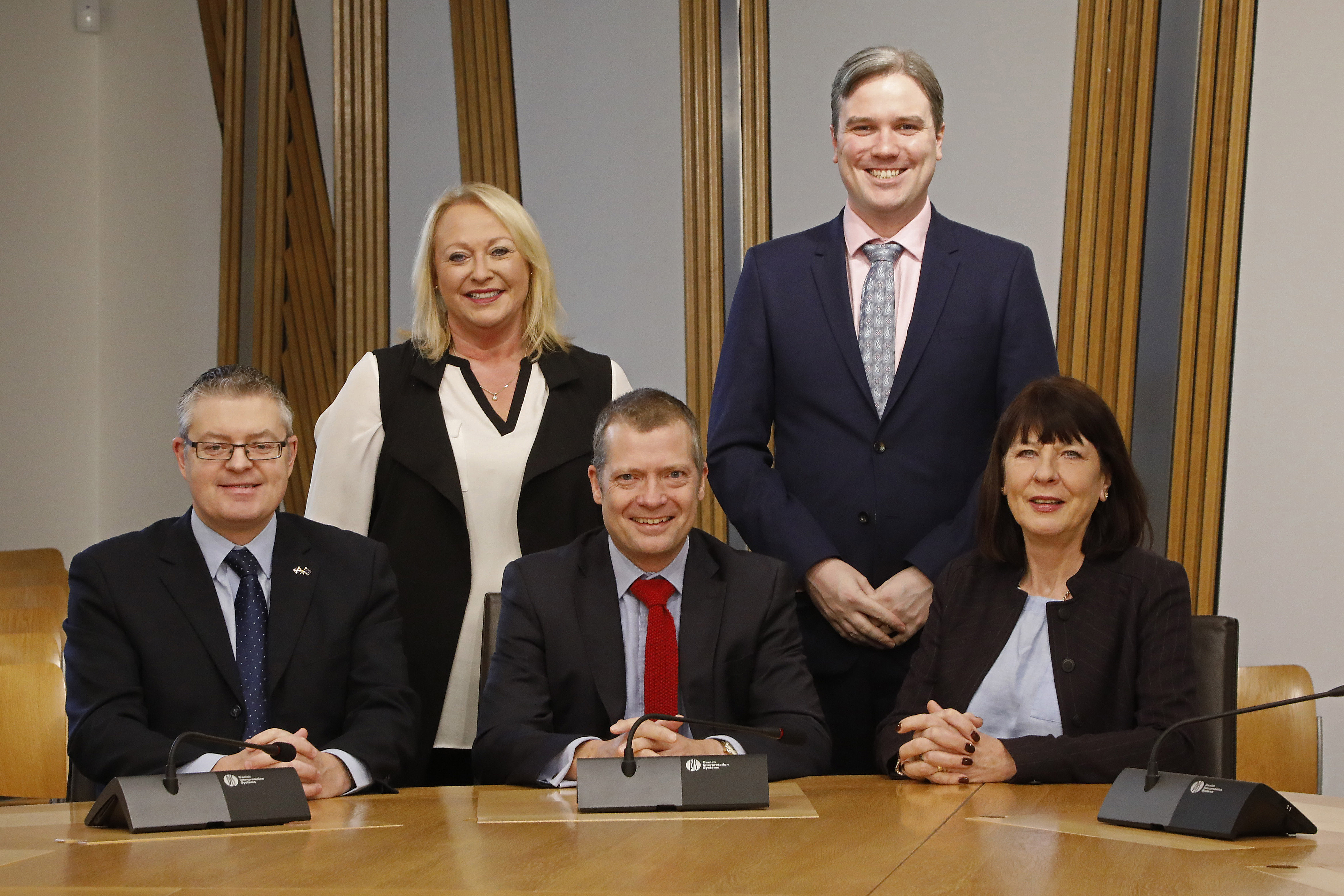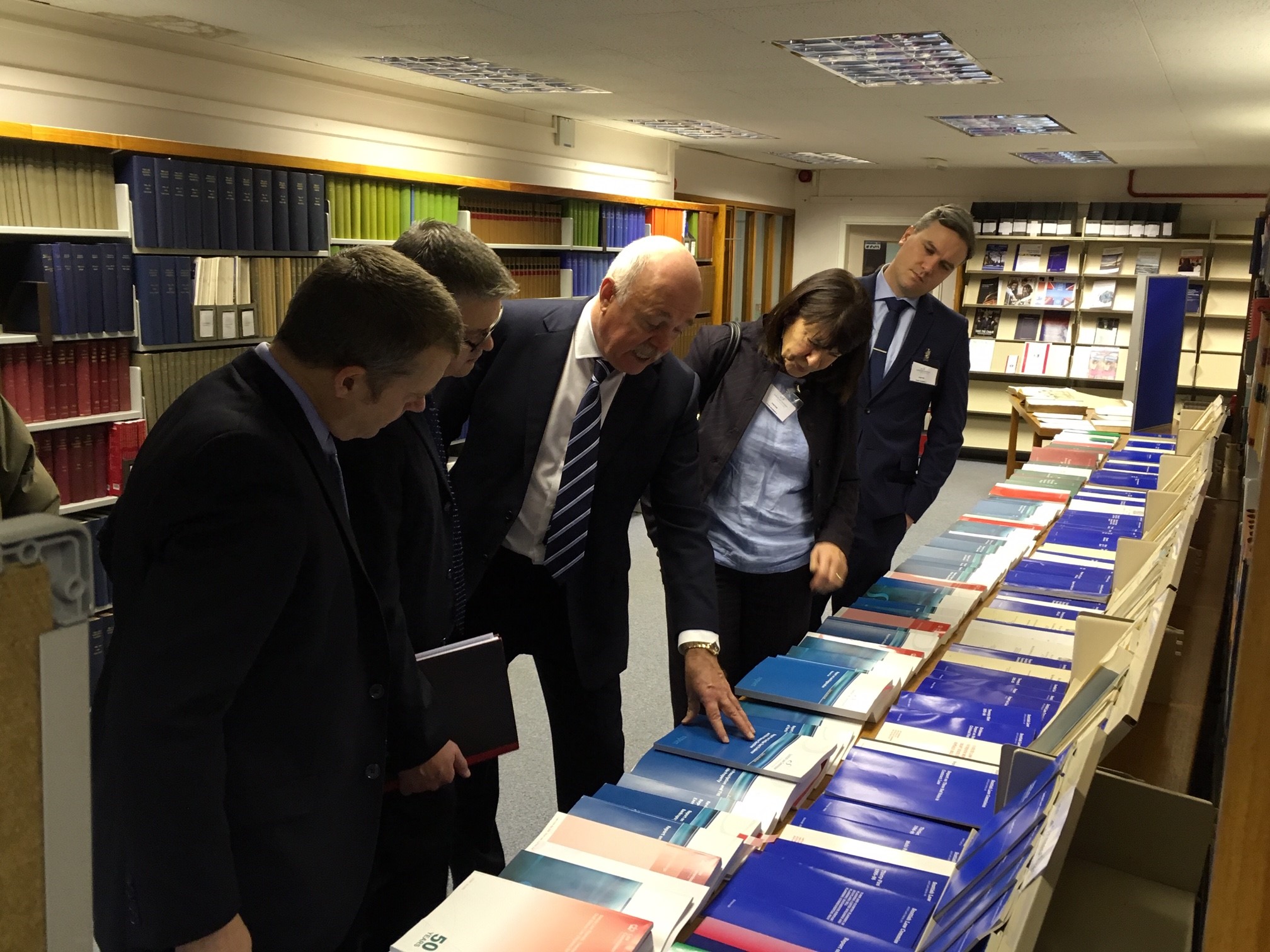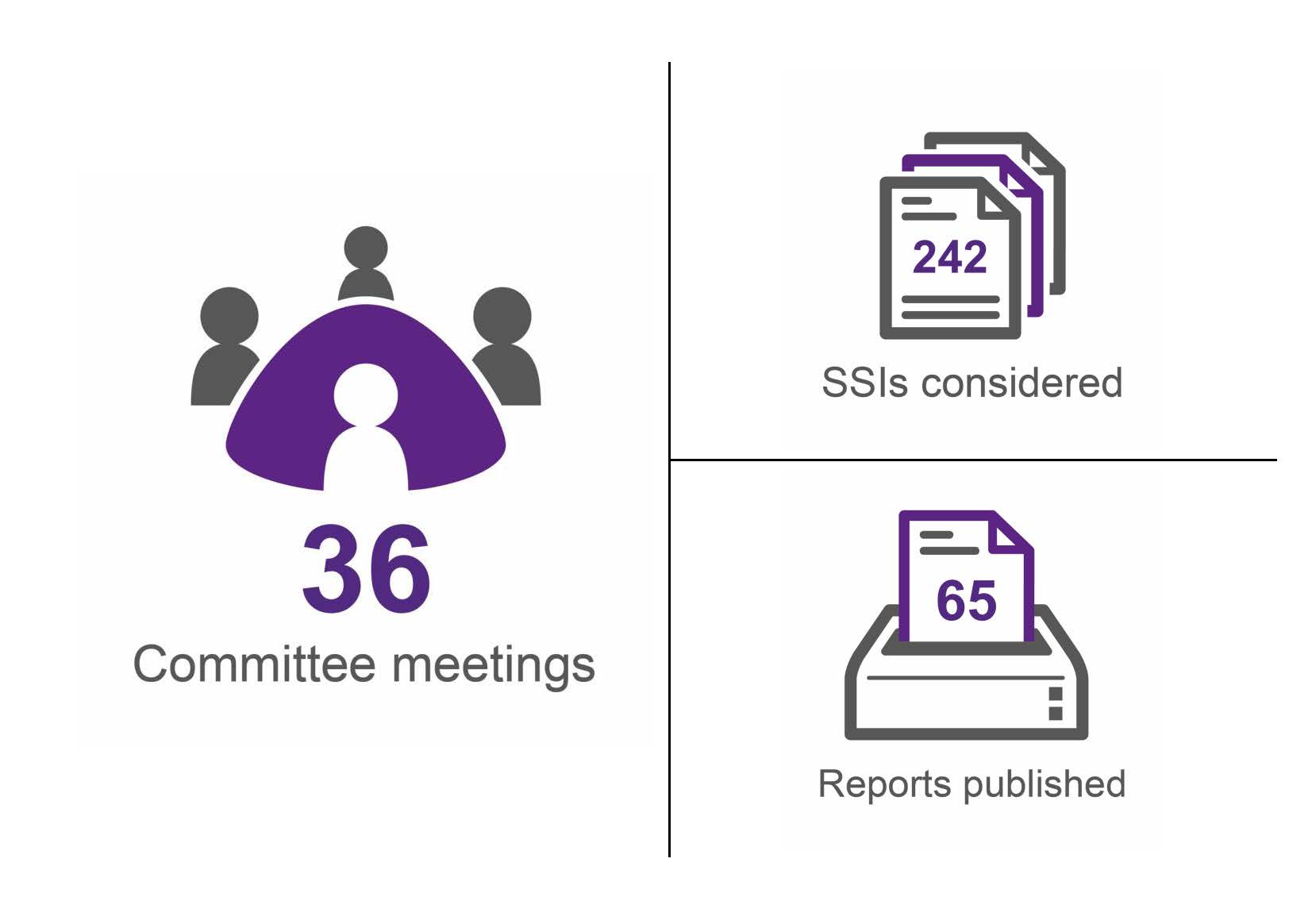Delegated Powers and Law Reform Committee
Delegated Powers and Law Reform Committee Annual Report 2018-19
Introduction
This Report covers the work of the Committee during the parliamentary year from 12 May 2018 to 11 May 2019. The Committee has scrutinised Scottish statutory instruments this year, as well as delegated powers provisions within several bills.

Members of the Committee: Back Row: Alison Harris and Tom Arthur. Front Row: Stuart McMillan (Deputy Convener), Graham Simpson (Convener) and Mary Fee.
Membership Changes
Previous Members of the Committee during the reporting year:
Neil Findlay (from 9 January 2018 to 1 November 2018)
Bills
In addition to Scottish Law Commission bills, the Committee considers delegated powers provisions in Scottish Government and Members’ bills. It then reports to subject committees and the Parliament on issues such as the scope of delegated powers and whether delegated powers are within vires.
Over the reporting period, the Committee has considered and reported on the following 16 bills at Stage 1:
Age of Criminal Responsibility (Scotland) Bill
Budget (Scotland) (No.3) Bill
Census (Amendment) (Scotland) Bill
Children (Equal Protection from Assault) (Scotland) Bill
Climate Change (Emissions Reduction Targets) (Scotland) Bill
Damages (Investment Returns and Periodical Payments) (Scotland) Bill
Fuel Poverty (Target, Definition and Strategy) (Scotland) Bill
Health and Care Staffing (Scotland) Bill
Human Tissue (Authorisation) (Scotland) Bill
Management of Offenders (Scotland) Bill
Non-Domestic Rates (Scotland) Bill
Restricted Roads (20mph Limit) (Scotland) Bill
Scottish National Investment Bank Bill
South of Scotland Enterprise Bill
Transport (Scotland) Bill
Vulnerable Witnesses (Criminal Evidence) (Scotland) Bill
The Committee also considered and reported on the following seven bills after Stage 2:
Age of Criminal Responsibility (Scotland) Bill
Health and Care (Staffing) (Scotland) Bill
Historical Sexual Offences (Pardons and Disregards) (Scotland) Bill
Housing (Amendment) (Scotland) Bill
Islands (Scotland) Bill
Planning (Scotland) Bill
Scottish Crown Estate Bill
| Stage 1 | Stage 2 | Government Bills | Members' Bills |
|---|---|---|---|
| 16 | 7 | 14 | 2 |

The majority of the bills considered by the Committee during the reporting period were Scottish Government bills and, as with previous years, it is hoped that the recommendations of the Committee on those bills will lead to a number of changes by the Scottish Government to relevant provisions. Through its scrutiny process, the Committee also aims to ensure that the appropriate balance between primary and secondary legislation within bills is maintained.
Legislative Consent Memorandums/UK withdrawal from the EU
The Committee considered and reported on five Legislative Consent Memorandums (LCM). LCMs are related to UK Parliament bills which seek to change the law or alter Scottish Ministers’ or the Scottish Parliament’s powers in relation to devolved matters. The LCMs considered and reported on by the Committee were:
Counter Terrorism and Border Security Bill
Fisheries Bill
Immigration and Social Security Coordination Bill
Offensive Weapons Bill
Trade Bill
The Committee took evidence from George Hollingbery MP, Minister of State for Trade Policy and Michael Russell MSP, Cabinet Secretary for Government Business and Constitutional Relations to inform its report on the LCM in relation to the Trade Bill.
Subordinate Legislation
The Committee considered 31 instruments laid under the European Union (Withdrawal) Act 2018 (“the 2018 Act”). These instruments were considered in terms of the protocol agreed with the Scottish Government and approved by the Committee. The protocol required each instrument laid under the 2018 Act to be considered in terms of the scrutiny procedure attached to the instrument by the Government and the Government’s assessment of the instrument’s significance in terms of policy impact.
The Committee challenged the Scottish Government’s categorisation of three Brexit-related Scottish Statutory instruments. For two instruments, the Committee recommended that the categorisation be raised, in one case from Medium to High significance and in another case from Low to Medium significance. In the case of one instrument, the Committee recommended that the categorisation be lowered from Medium to Low significance.i
The Committee considered a significant number of instruments this year, working to tight timescales to produce 35 reports covering 242 Scottish statutory instruments.
Of the instruments considered, 62 were subject to affirmative procedure, 136 to negative procedure, and 39 were not subject to any parliamentary procedure.
In addition to the instruments outlined above, the Committee also considered, two provisional affirmative instruments, a code of practice, one document laid for consultation, and one document subject to approval.

The Committee also published three quarterly reports which recorded the Committee’s scrutiny of instruments during the first 9 months of this parliamentary year.
Law Reform
The Committee completed its consideration of the Prescription (Scotland) Bill. This was the fourth Scottish Law Commission (SLC) bill to be introduced since the remit of its predecessor committee was changed to allow for the consideration of such bills in June 2013. The Bill received Royal Assent on 18 December 2018.
The Committee has also agreed to undertake some work in relation to the criteria for designating a bill as an SLC bill. This followed a visit to the Scottish Law Commission in November 2018 where the Committee met with the Chair and Commissioners and learnt more about its history and current work. (Lady Paton has now taken over the Chair of the SLC from Lord Pentland)

From left to right: Graham Simpson MSP (Convener), Stuart McMillan MSP (Deputy Convener), Lord Pentland (Chair of the SLC), Mary Fee MSP, and Tom Arthur MSP.
Meetings
Equalities
The Committee considers equalities issues which can arise under the European Convention on Human Rights (ECHR) and under Community law. It is part of the Committee’s remit to draw the attention of lead committees and the Parliament to any instrument or bill that, in its opinion, fails to comply with any such requirement.
Business conducted
The Committee met 36 times during the parliamentary year. Of these meetings, none were entirely in private, but all 36 meetings included items in private.
The main reasons for taking business in private were to consider the Committee’s approach to delegated powers in bills or to consider oral evidence heard earlier in the meeting.
All the Committee’s meetings have been held in Edinburgh.
The Committee produced a total of 65 reports.
